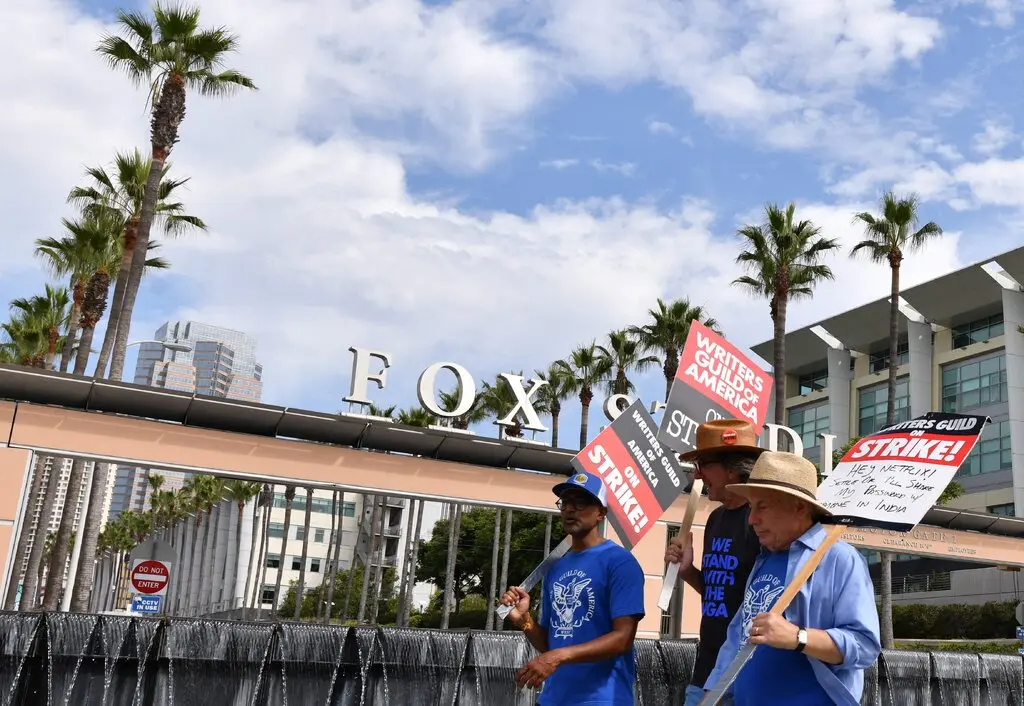The entertainment industry faced a significant labor impasse as Hollywood’s major studios took an unconventional approach on Tuesday evening by publicly sharing the specifics of their latest proposal to the Writers Guild of America (WGA), the union representing 11,500 striking TV and movie writers. This move is seen as an attempt to break the deadlock and circumvent union leadership to appeal directly to union members.
The ongoing strike has led to a near-complete halt in Hollywood productions, forcing the studios to make critical decisions about delaying the release of major films like “Dune: Part Two” and potentially reshaping the network television lineup for the 2023-24 season with reality shows and reruns.
Top executives from major Hollywood companies, including David Zaslav of Warner Bros. Discovery and Robert A. Iger of Disney, met with WGA officials to discuss the new proposal before its release, according to a statement from the union’s negotiation committee.
The studios’ decision to publicize their proposal is an attempt to bypass the guild’s negotiation committee and appeal directly to the rank-and-file members. The studios seem to be banking on the idea that their offer will be attractive enough to persuade members to pressure their leaders into reaching a deal.
However, the writers’ union quickly dismissed the studios’ offer, stating that it “did not adequately address the fundamental challenges that led to our decision to strike.” The union characterized the studios’ public release of the proposal as a tactic to sow division among the writers.
The strike has now reached its 113th day, and negotiations between the studios and the writers resumed on August 11, marking the first talks since early May. Despite initial optimism within the entertainment industry, the public disclosure of the proposal by the Alliance of Motion Picture and Television Producers, which represents the studios, suggests that negotiations might be at a standstill once again.
The studios claimed their proposal included the “largest wage increase” for writers in over thirty years, along with an enhanced residuals system, a major point of contention. They also highlighted the inclusion of significant safeguards against the impact of artificial intelligence and a commitment to sharing some streaming viewership data with the guild, a previously guarded piece of information.
In a statement accompanying the proposal details, Carol Lombardini, the lead negotiator for the alliance, expressed the studios’ earnest desire to end the strike and hoped for the WGA’s cooperation towards the same goal.
Since thousands of actors joined the picket lines alongside screenwriters on July 14, Hollywood has effectively been shut down. Both writers and actors have emphasized the gravity of the moment, arguing that the rise of streaming platforms has negatively affected their working conditions and earnings.
The studios’ announcement marks a pivotal juncture in the ongoing labor dispute, as they strive to find a common ground with the writers and resume the creative process that fuels the entertainment industry worldwide.
